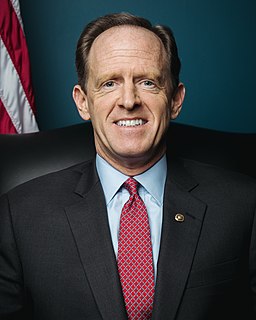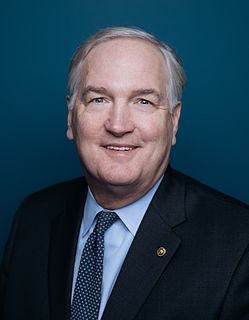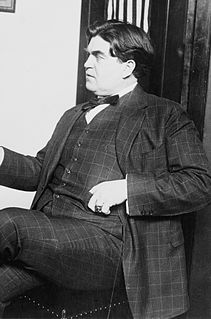A Quote by Pat Toomey
If you have a federal government that's not enforcing the law and does not preserve the integrity of its own borders, then naturally, states are going to take matters into their own hands.
Related Quotes
Gorsuch, who is a U.S. Supreme Court nominee in the United States, said the real test of law is when a government can lose in its own courts and still respect the order. And I think Canadian need to ask is why would Canada, if it's doing everything right, why wouldn't you want to be watched? If they are contesting the fact that their own courts don't have jurisdiction over the government's human rights violations, then our next step is to go to federal court and find the federal government that can come to court and we will do that.
Constitutions are violated, and it would be absurd to expect the federal government to enforce the Constitution against itself. If the very federal judges the Constitution was partly intended to restrain were the ones exclusively charged with enforcing it, then "America possesses only the effigy of a Constitution." The states, the very constituents of the Union, had to do the enforcing.
The idea that the United States can't guard its own border is silly. It's a sign that were not serious about this...people who legally shouldn't be here. When the state is forced to take care of them - for example, if they have an illegal alien in their prison - the federal government should pay for it. If Washington has to pay for it, Washington's going to more rapidly understand why we have to take some necessary steps.
Creating my own roles, as an actor, is great. You're so at the mercy of other people, and you're waiting for a job. That's just a horrible way to live, so I just decided to take matters into my own hands, find my own projects, and create them myself, and then do other stuff that people might throw my way as well.
In a world in which the United States does less, whatever set of calculations, other countries will tend to calculate - to move in one of two ways. Either they will assuage or, to use a more loaded term, appease the strongest power in the neighborhood with all the consequences of that, or they will determine to take matters into their own hands.
It is federal, because it is the government of States united in a political union, in contradistinction to a government of individuals, that is, by what is usually called, a social compact. To express it more concisely, it is federal and not national because it is the government of a community of States, and not the government of a single State or Nation.

































